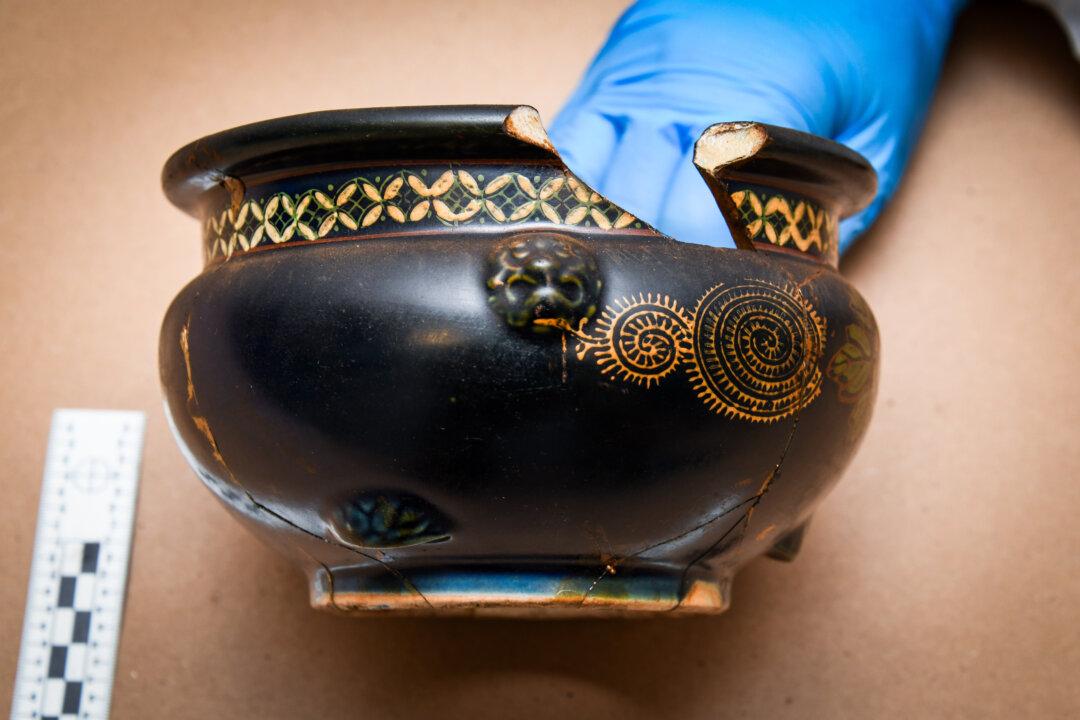A number of historic Japanese artifacts allegedly looted from Okinawa Island in the dying days of World War II have been returned home to Japan after a family from Massachusetts discovered 22 items in their late father’s attic.
In a March 15 report, the FBI revealed that the artifacts were missing for nearly 80 years until the FBI Boston Field Office received a message from a Massachusetts family who found what they described as “valuable Asian art” among the belongings of their deceased father, who had served in WWII.





